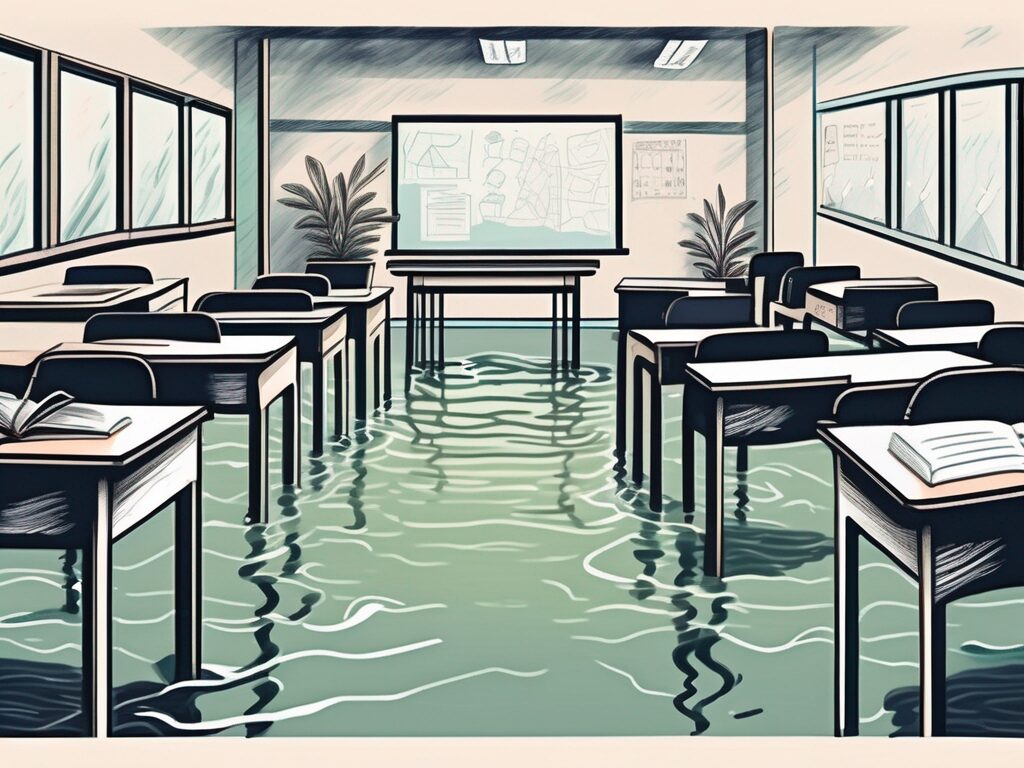Bangkok, the bustling capital city of Thailand, is a vibrant hub of culture, commerce, and education. However, beneath the city’s glittering skyline, the education sector is grappling with a myriad of challenges. From outdated teaching methods to a lack of resources, these issues are hindering the city’s potential to become a global educational powerhouse.
The Outdated Curriculum
The first major issue is the outdated curriculum. The current education system in Bangkok is still heavily reliant on rote learning, where students are expected to memorise information and regurgitate it during examinations. This method of teaching is not only archaic but also fails to equip students with the critical thinking and problem-solving skills needed in the 21st century.
Comparatively, countries like Finland and Singapore have already revamped their curriculums to focus more on holistic learning and skill development. These countries are now reaping the benefits, with their students consistently outperforming their peers in international assessments.
Resistance to Change
One of the reasons for the persistence of the outdated curriculum is the resistance to change. Many educators in Bangkok are accustomed to the traditional way of teaching and are reluctant to adopt new methods. This resistance is a significant barrier to the implementation of a more modern and relevant curriculum.
For instance, in countries like the United States and Australia, teachers are encouraged to experiment with different teaching methods and are given the freedom to tailor their lessons to their students’ needs. This flexibility is lacking in Bangkok’s education sector, leading to a stagnation in teaching methods.
Lack of Resources
The second major issue is the lack of resources. Many schools in Bangkok are underfunded and lack the necessary resources to provide a quality education. This issue is particularly prevalent in public schools, where overcrowded classrooms and inadequate facilities are common.
Contrast this with the situation in countries like Japan and South Korea, where significant investments have been made in the education sector. These countries boast state-of-the-art facilities and small class sizes, which contribute to a conducive learning environment.
Unequal Access to Education
Another aspect of the resource issue is the unequal access to education. Children from affluent families often attend private schools with excellent facilities, while those from less privileged backgrounds are left to contend with the resource-strapped public schools. This disparity creates an education gap that is difficult to bridge.
Take, for example, the education system in Denmark, where all children, regardless of their socio-economic background, have access to the same quality of education. This equality in education has been a significant factor in Denmark’s high rankings in global education indices.
The Language Barrier
The third major issue is the language barrier. English is widely recognised as the global language of business, yet many students in Bangkok struggle with English proficiency. This lack of fluency hinders their ability to compete on an international level.
Compare this with the situation in the Netherlands, where English is taught from a young age and Dutch students have one of the highest levels of English proficiency in the world. This proficiency has opened up numerous opportunities for Dutch students, both academically and professionally.
The Need for Bilingual Education
The solution to the language barrier could lie in bilingual education. However, implementing such a system in Bangkok’s schools is fraught with challenges. These include a shortage of qualified English teachers and a lack of support for bilingual education among parents and educators.
On the other hand, countries like Canada and Switzerland have successfully implemented bilingual education systems. These countries recognise the value of multilingualism and have invested heavily in bilingual education, resulting in a generation of students who are proficient in more than one language.
Conclusion
In conclusion, the education sector in Bangkok is facing several significant challenges. These include an outdated curriculum, a lack of resources, and a language barrier. Overcoming these issues will require a concerted effort from all stakeholders, including educators, parents, and policymakers.
However, by looking to the successful education systems in other countries, Bangkok can find inspiration and practical solutions to these challenges. With the right reforms, there is no doubt that Bangkok has the potential to transform its education sector and provide its students with the skills and knowledge they need to succeed in the 21st century.
Empower Your Teaching Career with IPGCE
As Bangkok seeks to overcome the hurdles within its education sector, educators have the opportunity to be at the forefront of this transformation. The International Postgraduate Certificate in Education (iPGCE) is your gateway to enhancing your qualifications, connecting with a global network of professionals, and gaining a deep understanding of international curricula. Embrace the chance to advance your career, increase your salary, and become a more adaptable educator. Don’t let inadequate credentials or isolation limit your potential. Join the UK’s #1 Teacher Training Course and be part of the change that Bangkok’s education sector needs. Enroll in the iPGCE program today and take the next step in your professional journey.

